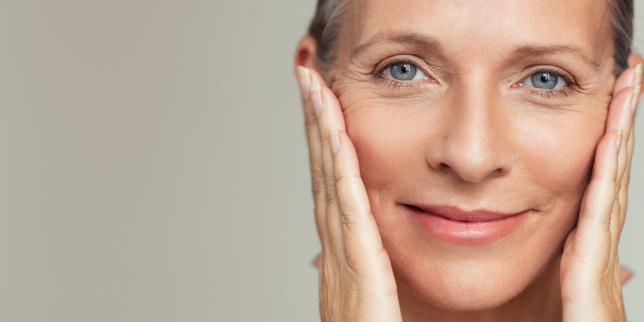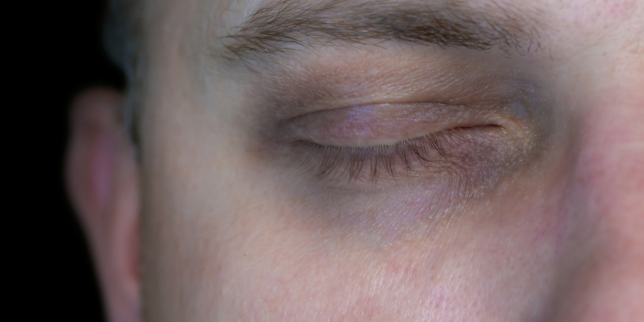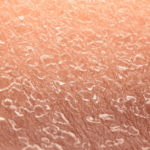Sleep is a fundamental aspect of maintaining overall health and well-being. While the importance of sleep for cognitive function and physical recovery is well-known, its impact on skin health is often overlooked.
Adequate sleep plays a crucial role in promoting and preserving the health and appearance of our skin. In this article, we will delve into the research and scientific evidence that highlights the significance of getting enough sleep for maintaining healthy, radiant skin.
We will explore how sleep affects various aspects of skin health, including aging, complexion, overall skin integrity, and the prevention of common skin concerns.
1. Reduced Aging Signs

One of the most compelling reasons to prioritize sleep for skin health is its potential to slow down the aging process. Sleep deprivation has been linked to accelerated skin aging, including the formation of fine lines, wrinkles, and uneven skin texture.
A study published in the journal Clinical and Experimental Dermatology found that individuals who consistently received quality sleep had fewer signs of skin aging compared to those with poor sleep habits.
Lack of sleep disrupts the natural regenerative processes of the skin, impairing collagen production and hindering the repair of skin damage caused by environmental factors. Collagen is a vital protein that gives skin its strength and elasticity, and its depletion contributes to the visible signs of aging.
2. Enhanced Complexion

A well-rested complexion is often associated with a vibrant, youthful appearance. When we sleep, our body goes into a state of repair and rejuvenation, which extends to our skin.
During deep sleep stages, the body increases blood flow to the skin, allowing vital nutrients and oxygen to reach its cells. As a result, the skin appears more refreshed, nourished, and glowing.
Additionally, sufficient sleep helps regulate the production of sebum, the skin’s natural oil. Imbalances in sebum production can lead to acne breakouts and other skin issues. By getting enough sleep, we can promote a balanced sebum production and maintain a clearer complexion.
Studies have shown that sleep deprivation can impair the skin’s natural barrier function, leading to an increased likelihood of developing inflammatory skin conditions such as acne and eczema.
3. Optimal Skin Barrier Function

The skin barrier acts as a protective shield, safeguarding against external pollutants, toxins, and moisture loss. A well-functioning skin barrier is crucial for maintaining healthy skin.
Sleep deprivation has been shown to impair the skin barrier function, leaving it vulnerable to damage and irritation. In a study published in the journal Acta Dermato-Venereologica, researchers found that sleep-deprived individuals exhibited higher transepidermal water loss (TEWL), indicating a compromised skin barrier.
A weakened skin barrier not only increases the risk of developing skin conditions such as dermatitis but also hinders the skin’s ability to retain moisture, leading to dryness and dullness. Moisture retention is essential for maintaining a supple and plump appearance.
4. Reduction in Under-Eye Bags and Dark Circles

Insufficient sleep often results in the dreaded under-eye bags and dark circles, which can significantly impact our appearance. During sleep, the body works to reduce inflammation and eliminate excess fluid, including fluid retention in the under-eye area.
Prolonged lack of sleep disrupts this process, causing fluid to accumulate and resulting in puffiness and dark circles. A study published in the journal Sleep showed that participants who consistently slept for shorter durations had more noticeable under-eye puffiness and darker under-eye circles.
Prioritizing quality sleep can help alleviate these cosmetic concerns and enhance the overall youthfulness of the face. Additionally, lack of sleep can also contribute to a dull and lackluster complexion, further emphasizing the importance of sleep for overall skin radiance.
Conclusion
The importance of sleep for skin health cannot be overstated. From reducing aging signs and enhancing complexion to optimizing the skin barrier function and minimizing under-eye bags, sufficient sleep plays a vital role in maintaining healthy and radiant skin.
To reap the benefits, it is recommended to establish a consistent sleep routine, create a sleep-friendly environment, and prioritize the recommended 7-9 hours of quality sleep each night.
By recognizing the close connection between sleep and skin health, we can take proactive steps towards achieving and maintaining vibrant, glowing skin for years to come.




